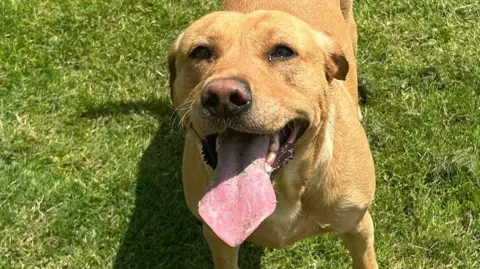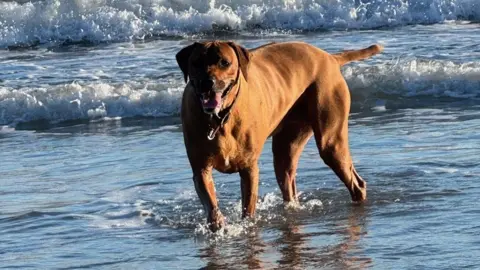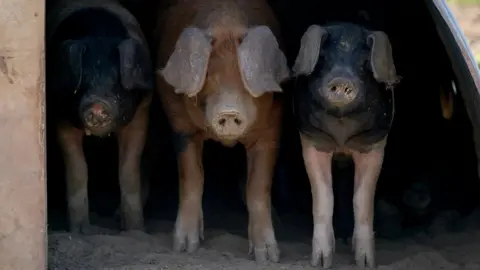BBC News, South West
 The Dog Squad on the Roseland
The Dog Squad on the RoselandAnimal welfare experts have reminded pet owners and farmers about the “huge risks” high temperatures pose to animals.
The RSPCA said owners should learn how to keep their four-legged friends safe during the ongoing heatwave across Devon and Cornwall.
The charity reminded farmers pigs are susceptible to heat stress as they cannot easily cool down on their own, as are newly shorn sheep as they do not have fleeces to insulate them against the heat.
Lauren Bennett, RSPCA scientific and policy officer, said all animals needed shade and clean water in high temperatures and “taking the time now to identify how you can reduce your animal’s risk, could just save their life”.

Ms Bennett said: “Sadly, while vets are seeing a surge in cases, some police forces have also reported an increase in officers attending calls about dogs in hot cars.
“This can’t continue.”
Ms Bennett said dog owners should check the “feels like” temperature forecast each day, add more water bowls around homes and walk their pets earlier and later in the day when temperatures were lower.
She also reminded dog owners “if the ground is too hot to touch with your hand for five seconds, it’s too hot for paws”.
She warned owners heatstroke could affect dogs which were older, larger, overweight, double-coated and those with potential breathing issues such as flat-faced breeds.
 PA Media
PA MediaThe RSPCA reminded farmers livestock needed plenty of air in high temperatures, so ventilation was key and ideally they would reduce the number of animals in each building.
The charity suggested dairy farmers give their cows unlimited amounts of clean drinking water and milk them later in the day when it would be cooler.
The RSPCA said handling and transport put extra stress on animals which made it more difficult for them to cope with the heat.
The charity advised farmers to avoid moving livestock in hot weather and at night if it was “absolutely necessary”.
Ms Bennett said owners who suspected their animals were suffering from heat stroke should get them cool as quickly as possible and contact their vet.
This post was originally published on this site be sure to check out more of their content.












































